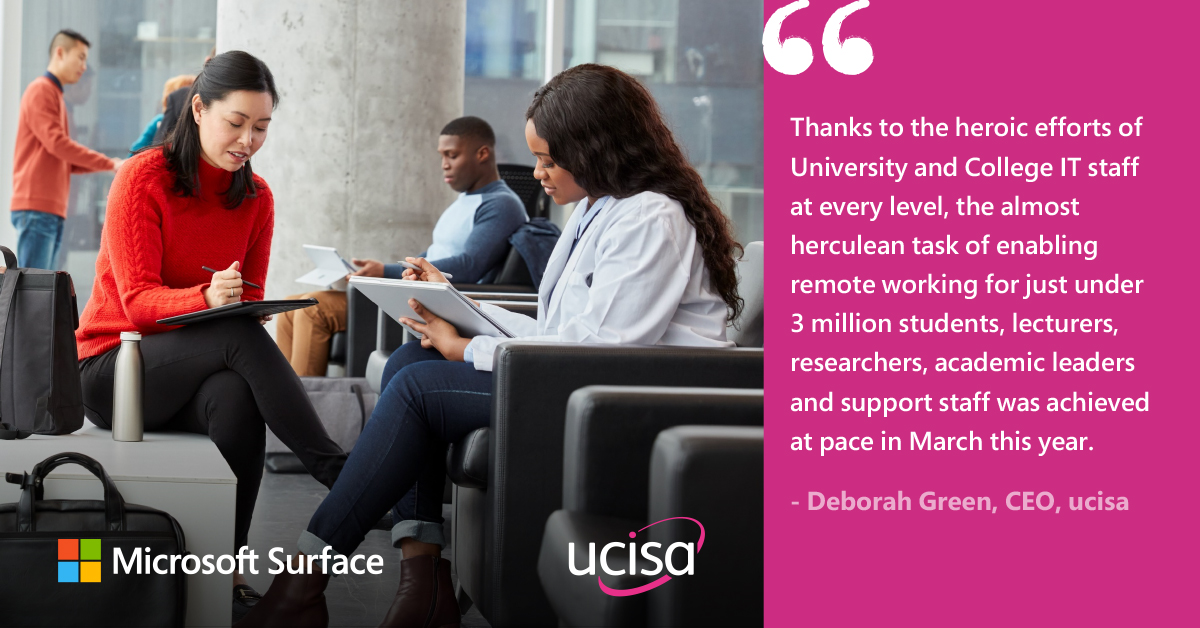New perspectives on Education's digital future
Download the full report
Microsoft recently partnered with ucisa, the member led professional body for digital practitioners in education for a series of in-depth qualitative interviews with 14 CIOs and Heads of IT at Universities across England, Wales, Scotland and Northern Ireland to capture their insights and perspectives on educations digital future as the sector navigates this seismic shift. The key findings are below:
- IT staff enabled remote operations for just under 3 million students, lecturers, researchers, academic leaders, and support staff at a pace never witnessed previously across the UK
- CIOs remain in broad agreement that higher education institutions set to be most successful in this new era are those who can harness the benefits of remote learning – combined with the best elements of being on campus
- The newfound visibility and authority CIOs have enjoyed through their role in moving their institutions onto remote learning has meant any notion of them being simply a ‘delivery team’ is now null and void
- CIOs are conscious of not wanting to accrue ‘technical debt’; having prioritised short-term solutions to address immediate needs, now they recognise further digitalisation must be driven strategically to ensure interoperability and security is built in
And
- whilst there is work to be done to facilitate a blended approach that yields pedagogical, operational and financial results, CIO’s are best placed to support on long term digital strategy as the sector continues its transformation
With higher education contributing £95 billion in gross output for the UK economy it is vital to get right the digital solutions that can support a hybrid delivery model.
"This joint report highlights the key role CIOs and the teams they lead have played in enabling the Higher Education sectors recent response. As one Vice Chancellor put it – ‘our IT team has delivered four years’ worth of digital strategy in six weeks’. The perspectives in this report are vital for both suppliers and the industry to hear, as the facilitation of hybrid learning and the collaboration across institutions continues” - Deborah Green, CEO, ucisa
"At Microsoft, we view supporting and empowering these institutions as key to our mission of helping every individual and organisation on the planet achieve more. The insights here are a testament to the collaborative nature of higher education and a fascinating window into a sector in the midst of unprecedented changes.” - Mark Rowland, Senior Product Marketing Manager - SMB & Education at Microsoft UK
Download the full report


